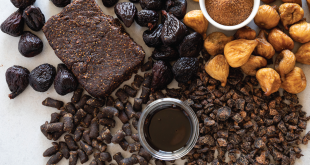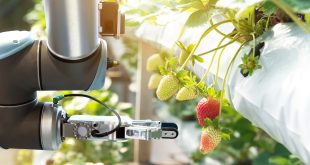Text by Sarah Theodore
 Juice drinks in Canada have struggled in recent years, with volumes declining 1.3% in 2014 and 2.7% in 2015, according to Mintel estimates. Cost has played an important role in consumption declines, as have changing consumer demographics that favour older consumers who tend to drink less juice than younger consumers or households with children. What’s more, an increase in home juicing is thought to be affecting packaged juice purchases in Canada, according to Mintel.
Juice drinks in Canada have struggled in recent years, with volumes declining 1.3% in 2014 and 2.7% in 2015, according to Mintel estimates. Cost has played an important role in consumption declines, as have changing consumer demographics that favour older consumers who tend to drink less juice than younger consumers or households with children. What’s more, an increase in home juicing is thought to be affecting packaged juice purchases in Canada, according to Mintel.
As in many global markets, juice drinks in Canada also contend with the dual, and sometimes contradictory, consumer demands for “free-from” products that are both “cleaner” – containing only short, easily recognizable ingredient lists – and offer some type of functional benefit, which can require unfamiliar ingredients.
Among consumers who do not drink juice or do not drink it often, for example, one-third indicate it is because the products contain too many unhealthy ingredients (e.g. sugar/sodium). Additionally, more than one-quarter of Canadian consumers rank juices and soft drinks among the products that include ingredients that “should be reduced or removed,” while three in five consumers agree free-from products are healthier to eat or drink, according to Mintel.
It is likely that beverages such as carbonated soft drinks bear the brunt of those concerns about ingredients. But it is also clear that juice drinks are not immune as consumers begin to question everything from added sugars to the potential for pesticides, GMOs or potential allergens to be in the products they buy.
Four out of five Canadian consumers say they buy some type of free-from food or drink, ranging from products that claim to be free of transfats, preservatives, or sugar to those with no antibiotics, lactose, gluten or GMOs. At the same time, however, 58% of Canadian consumers who purchase free-from foods agree that “I am more interested in foods that are fortified with healthy ingredients (e.g. high fibre) than food that excludes unhealthy ones.” Those contradictory demands can make it difficult for juice manufacturers to offer products with short, “clean” ingredient lists, and also innovate around functional benefits that may attract more consumers to the juice category, but also may require unfamiliar ingredients.
Addressing free-from preferences
Canadian consumers have a range of ingredients they seek to avoid when they purchase food and drink. Among the most relevant to juice manufacturers, close to half of consumers seek products that are free from preservatives, sugar and pesticides. Additionally, GMO-free products are sought by a significant portion of Canadian consumers.
Canada’s juice market does appear to be addressing some of the ingredient concerns that Canadian consumers find most important. Nearly four in 10 juice and juice drink introductions between 2013 and 2015, for example, included a low/no/reduced sugar claim, which is significantly higher than the global average of 21%, according to Mintel Global New Products Database (GNPD). Low/no/reduced allergen claims and gluten-free claims were found on 19% and 18% of introductions, respectively, which speaks to the one in five Canadian consumers who look for gluten-free products.
No additives and preservatives claims, on the other hand, were found in over one-third of introductions, which is slightly lower than the global figure. This indicates one area in which juice manufacturers could focus attention to alleviate concerns about preservatives and other juice drink additives.
A small percentage of juice drink introductions in Canada featured a GMO-free claim – higher than the global average, but significantly lower than the quarter of juice and juice drink introductions in Canada’s neighbour to the south, the U.S. GMOs have become a hot-button issue in the U.S., and the number of GMO-free juice claims increased 72% during the 2013-15 period.
Trends in the U.S. do not necessarily mean Canada will follow a similar pattern, but the close proximity makes it easy for such attitudes to spread. Combined with the high percentage of Canadian consumers who already say they buy GMO-free products, this suggests that GMO-free is a potential area for free-from formulations going forward.
Consumers balance free-from preferences with desire for functional benefits
The appeal of “free-from” products is clear, but Canadian consumers are somewhat wary of the claims as well. A significant six in 10 consumers who buy free-from food and drink say they are healthier to eat or drink, and a slightly smaller percentage agree that fewer ingredients in a product mean it is healthier. But nearly two-thirds also say free-from foods are an excuse for companies to charge more for products, and a larger portion agree that many free-from foods are a short-term fad.
This suggests juice manufacturers need to be selective about the free-from claims they make, ensuring those claims stick to the most relevant issues to the category, lest brands be perceived as over-claiming or jumping on the latest ingredient-scare bandwagon.
As noted earlier, a significant percentage of free-from consumers in Canada also agree that they are more interested in foods that are fortified with healthy ingredients than they are in foods that exclude unhealthy ingredients. These dual desires will challenge product developers to seek out ingredients with inherent health benefits that will allow them to simultaneously appeal to consumers’ free-from preferences and their desire for functional benefits.
Juice drinks in Canada are not immune to concerns about food and drink ingredients – from sugars to preservatives to GMOs – which will challenge what has already been a difficult growth environment. The increasing use of GMO-free claims in the neighbouring U.S. market suggests this could be an important untapped focus area in the future. So-called superfood ingredients could offer a way for juice manufacturers to meet the consumer desire for functionality, while maintaining the short, recognizable ingredient lists that have come to symbolize “free-from” or “clean label” products.
Sarah Theodore is Research Manager, Food and Drink at Mintel
 Canadian Food Business
Canadian Food Business




